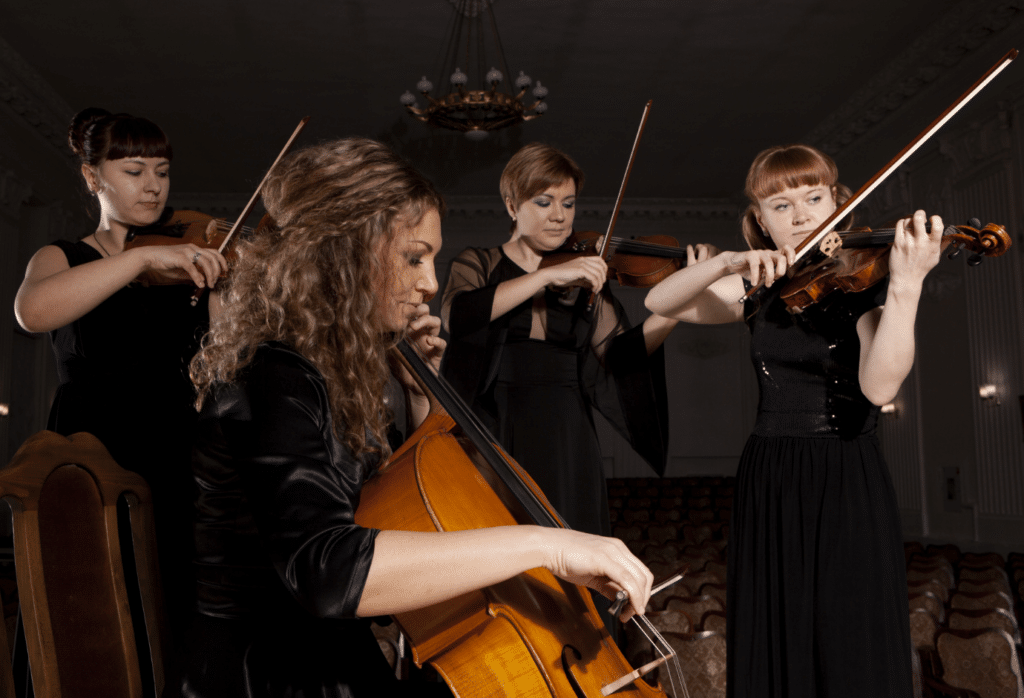In the UK, more than a third of women in the music industry have experienced sexual harassment while working, a new report has found.
The inaugural UK Musicians’ Census revealed that over fifty per cent of women have directly experienced gender discrimination in their roles as musicians, while over a quarter have witnessed sexual harassment being perpetrated by others during their working hours.
More than two thirds of women identified work-related abuse or harassment as a significant career barrier, while the same proportion identified gender discrimination as a reason for their lack of career progression.
The report, a joint collaboration between Help Musicians, the Musicians’ Union (MU) and Women in CTRL, surveyed 2,526 female musicians and 3,474 male musicians and found that on average, women are being paid less, despite being trained and educated to a higher level compared to men. Women were also found to have shorter careers in the music industry compared to men.
The report found that for female musicians, the average yearly income was £19,850 (AUD$38,404) while the figure stood at £21,750 (AUD$42,086) for men.
Less than a fifth of women made up the cohort of those who earned higher than £70,000 (AUD$135,437) a year.
Naomi Pohl, Musicians’ Union (MU) General Secretary, said the report’s findings illustrate the many discriminatory practices and behaviours still holding women back in their musical careers.
“We have long advocated for better pay gap reporting, and hope the Census findings will encourage the industry to take action, be more transparent and make change,” she said in a statement.
“At the MU, we are working to address gender inequity across the music industry and the arts.”
Pohl added that in the last few months, reports of “unacceptable behaviour“ have increased.
“The Census data on sexual harassment highlights just how prevalent this is,” she said. “We welcome the deeper insight into barriers to reporting instances of bullying, harassment and discrimination which we will highlight in our campaigning work.”
Almost a third of women reported not being able to earn enough money to support themselves and their family — citing “unsociable working hours” as a barrier. Twenty-eight per cent of female respondents were burnered with primary caring responsibilities, while over a fifth identified themselves as the primary carer for a child.
Nadia Khan, founder of Women in CTRL, described the release of the report as a “pivotal moment” that should offer “a unique opportunity for change.”
“It’s alarming to witness the persistence of gender disparities highlighted by the UK Musicians’ Census, where discrimination, harassment, and unequal pay remain prevalent issues faced by women musicians, demanding urgent action,” she said.
“It’s vital that the industry makes genuine commitments and takes decisive actions to prevent the recurrence of the same data.”
Khan founded Women in CTRL in 2017, a movement working to dismantle barriers and create an inclusive industry free from gender discrimination.
“[We] believe that change starts from the top, and we are steadfast in our commitment to continuing our leadership initiatives in the industry,” Khan said. “True progress can only be achieved when we address these systemic issues head-on and create a more equitable landscape for women in music.”
This year, the organisation Help Musicians announced plans review and update their Bullying and Harassment service. The organisation’s sister charity, Music Minds Matter, is also developing safe spaces for women in the music industry to access mental health provision and peer support.
Sarah Woods, chief executive of Help Musicians and Music Minds Matter hopes the report “encourage[s] the industry to continue collaborating to reduce gender-based barriers and ensure gender equity in every part of music.”
“The findings of the latest Census report show there’s still so much work to be done to make sure that working as a musician is equitable for all,” she said. “At Help Musicians we understand that we need to play our part too.”
In Australia, women working in the music industry also face disproportionate levels of sexual harassment and discrimination. A 2022 report by the Australian contemporary music industry found that 72 per cent of women have reported experiencing some sort of workplace sexual harassment and harm.
In January 2023, Creative Australia (formerly Australia Council for the Arts) established a new Centre for Arts and Entertainment Workplaces. The inaugural federal body was developed to ensure artists, musicians and workers in the industry are fairly paid and have workplaces free from sexual harassment, bullying, and discrimination.


